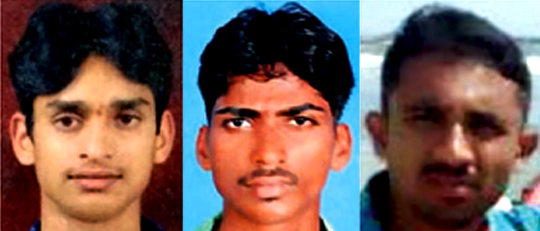Mangaluru, Jun 13: Three youths from Dakshina Kannada district in Karnataka have lost their lives in a road accident at Mashem in Canacona Police Station limits of Goa.

According to Canacona Police, the three were among the nine persons from the village, who had gone to Goa for excursion on Friday.
The incident occurred when they were on returning to Karwar from Madagaon. According to sources, their vehicle hit another van that was bound for Madagaon, before hitting a wall around 1.30 a.m. on Sunday.
The police said that three among nine died on the way to hospital. The other injured were treated in the hospital.
The police said that a case has been registered against the driver of the van from Dakshina Kannada.







Comments
It requires broadening of road system around....same narrow roads but more and more vehicles added in to it....every other day we hear one or other kind of accidents....
Tax payers money going in to the hands of corrupt politicians...not reaching to road broadening work at all....
what i m hearing now a days, in 1 week this the third news i m hearing of the accident.
many Youths lost their life by this kind of long drives.
Really tragic, RIP
my heartfelt condolences to the family,
Add new comment